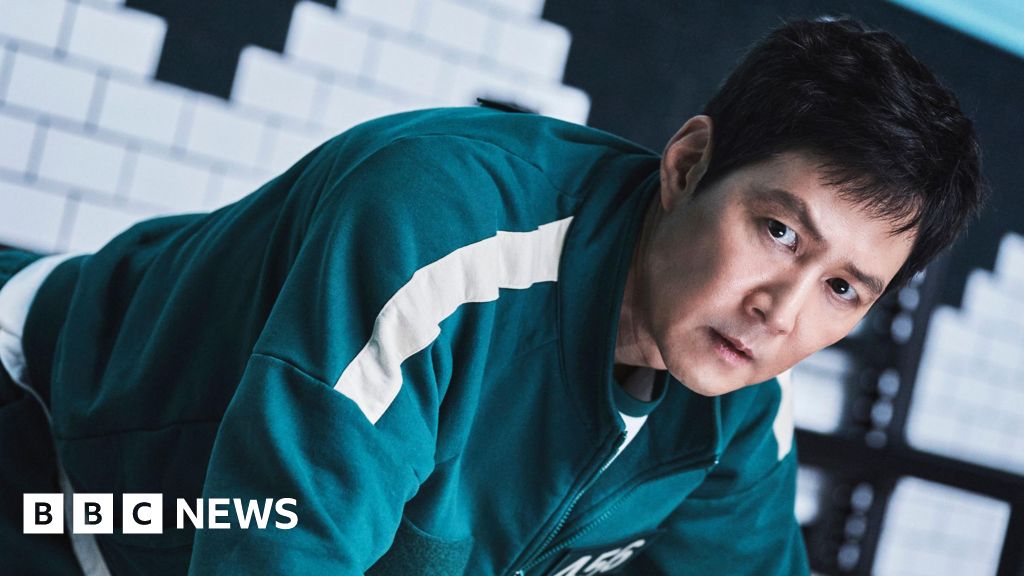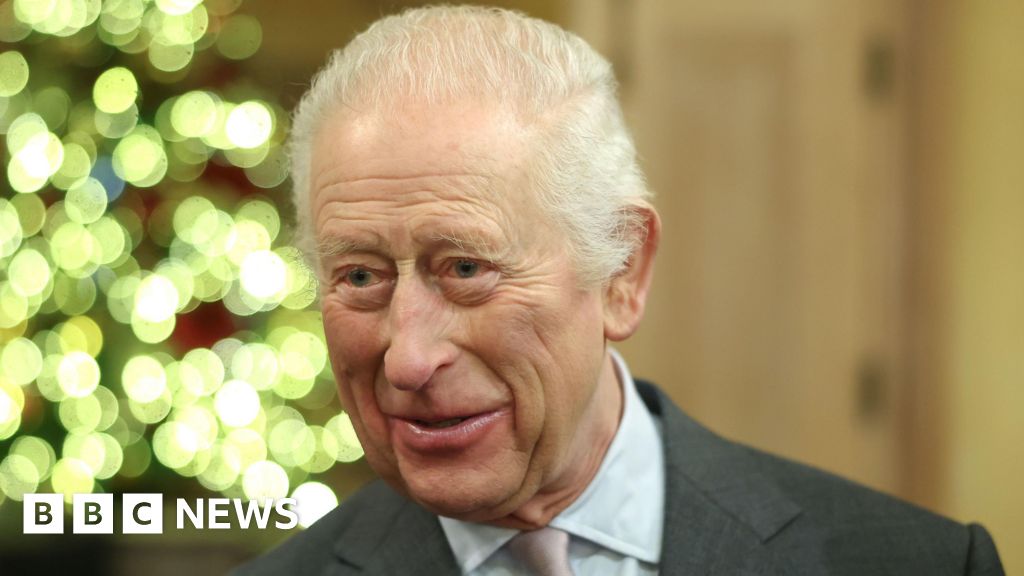
 BBC
BBC
Christopher MacRae's mum Sara died in the Royal Edinburgh Hospital in March, 2020
The son of a woman who took her own life in a hospital says he gave a nurse “clear evidence” that his mum was planning her suicide just hours before she died.
Christopher MacRae confiscated the evidence, handed it to the nurse and pleaded with him to search his mum’s bedroom for more potential dangers.
But the search was not carried out and former psychiatrist Dr Sara MacRae killed herself in her room at the Royal Edinburgh psychiatric hospital (REH) in March 2020.
NHS Lothian has apologised to the MacRae family and improved its processes for identifying patient risks since Dr MacRae's death.
Warning: This article contains distressing content
The door in Dr MacRae’s room had been assessed as a “high risk” for suicide attempts the year before she took her own life.
But it has still not been replaced and a £5m programme to upgrade all the REH’s single bedroom doors has not yet started - despite the work being described as “urgent” in 2022.

 Christopher MacRae
Christopher MacRae
Christopher with his mum Sara at his graduation ceremony from St Andrew's University
Christopher, 30, was the main carer for his mum, who suffered from mental illnesses for decades.
He said: “My family has been left in the dark for over four years waiting to find out what actually happened on that day.
“What I do know was that I handed this object to someone and there was no doubt she planned to use this object to take her life. I trusted him to protect my mum, to do the right thing and take care of her - and he didn’t.
“I took my mum there because I thought that was going to be the place where she was going to be saved and the day she died she was more unwell than on the day she went in.”
NHS Lothian has apologised to the family and upheld a complaint about Dr MacRae’s death. Its internal review of the incident concluded that the way the case was managed “had a direct impact on the level of harm”.
The circumstances leading to Dr MacRae's death at the Royal Edinburgh Hospital are currently being considered at a fatal accident inquiry (FAI).
However, BBC Scotland can reveal that:
- A safety briefing for staff working on Dr MacRae’s ward on the night of her death was not filled in until four weeks after the incident
- Ward staff did not know Dr MacRae had previously made similar attempts to take her own life
- A nurse has admitted it was “an error of judgment” not to take Christopher’s warnings and evidence more seriously and not to search Dr MacRae's room
Dr MacRae, who had a schizoaffective disorder, had been in hospital for six weeks before she died.
The 55-year-old was ordered to attend the Royal Edinburgh Hospital because her mental health problems, which stretched back to the 1990s, had become so acute.
Christopher, who would sometimes visit his mum at the hospital twice a day, had a ritual where he would make her promise she would she see him the next day.
“She reached a point where she felt she could no longer fight, she told me she was considering taking her own life,” he said.
“For 26 years she always said: ‘Don’t worry I’ll be here tomorrow, I’ll just get through the night’.
“This was the first time she had said no, I can’t promise I’ll see you tomorrow - and that was the hardest thing I’ve ever heard.”

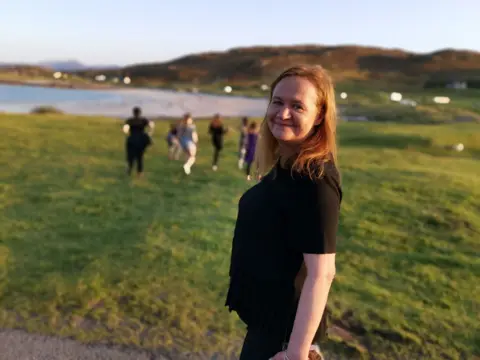 Christopher MacRae
Christopher MacRae
Christopher says Mellon Udrigle beach in Wester Ross was very close to his mother's heart, and her ashes were scattered there by the family
Christopher said his mother had shown him evidence that she intended to kill herself.
He took this to nurse Rado Rzeznicki, who Christopher said promised to search her room.
“To me, it seemed like if something wasn’t done about that I was going to lose her,” he said.
“It never happened. My mum would in likelihood still be with us today if he had cleared her room and looked for any similar objects because, as it turned out, there was a prominent similar object in her room.”
In evidence to the FAI at Edinburgh Sheriff Court earlier this month , Mr Rzeznicki said he took the evidence into a staff office, put it on a table and shared what he had been told with colleagues.
However, he told the inquiry he could not recall who was present.

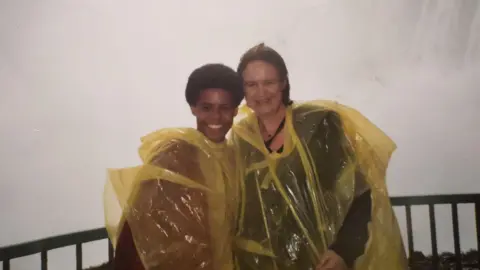 Christopher MacRae
Christopher MacRae
Christopher and his mum on holiday at Niagara Falls
According to NHS Lothian's serious adverse event review (SAER) into the incident, none of the on-duty nurses could recall being in the room when Mr Rzeznicki passed on this information - apart from the most senior nurse, who also could not remember who else was present.
The SAER, completed in 2020, found no details that Christopher’s evidence and concerns about his mum’s suicidal intentions were recorded in any NHS systems or passed on verbally to those working on the night shift when Dr MacRae died.
Mr Rzeznicki told the FAI it was his “error of judgement” not to take Christopher’s warnings more seriously and that “in retrospect I should have done the search”.
The inquiry also heard that NHS Lothian had improved its patient safety processes in the hospital since Dr MacRae's death.
NHS Lothian’s SAER review also found that previous attempts by Dr MacRae to end her life by a similar method – one of which was in the same hospital where she died - were “not readily accessible in the case notes” and “not known” by the team of medics charged with looking after her.
The review also revealed that a safety briefing which was meant to be prepared for nurses working on the ward the night Dr MacRae died was not completed that day as expected.
Instead the briefing - a note of any safety issues that the previous shift of nurses thinks colleagues should be aware of - was filled in four weeks after Dr MacRae’s death “with no clear rationale for this offered”, according to the SAER.
Other clinical records of contact between staff and Dr MacRae on the day of her death were filled in retrospectively by two nurses, the SAER found.

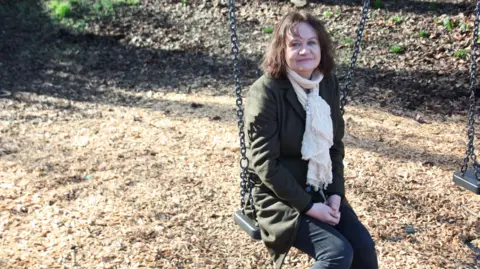 Christopher MacRae
Christopher MacRae
Concerns about self-harm prevention measures at the Royal Edinburgh Hospital stretch back to an improvement notice given to the hospital by the Health and Safety Executive in 2015.
A 2017 NHS Lothian report then said it was accepted that the design for a newly opened part of the hospital, which included Dr MacRae’s ward, “did not take into account the required anti-ligature specification for such facilities”.
The review into Dr MacRae’s death revealed a risk assessment of her room carried out by senior nurses in February 2019 described the doors as “high risk” because of the presence of ligature points.
The SAER recommended a review of the doors in all single bedrooms in the REH's acute wards.
NHS Lothian papers show that a £5m door replacement programme for the hospital was first proposed in 2022 and considered “urgent due to the risk of patient suicide with the current doors”.
The work is still categorised as a priority.
NHS Lothian previously told BBC Scotland that a project to upgrade the doors at the Royal Edinburgh Hospital was still to get under way due to budget constraints.
Dr Tracey Gillies, medical director at NHS Lothian said: “It would be inappropriate to comment on an ongoing legal process, but we extend our sincere condolences to Christopher and his family.”
- If you've been affected by the issues in this story, help and support is available via the BBC Action Line.

 2 months ago
15
2 months ago
15





